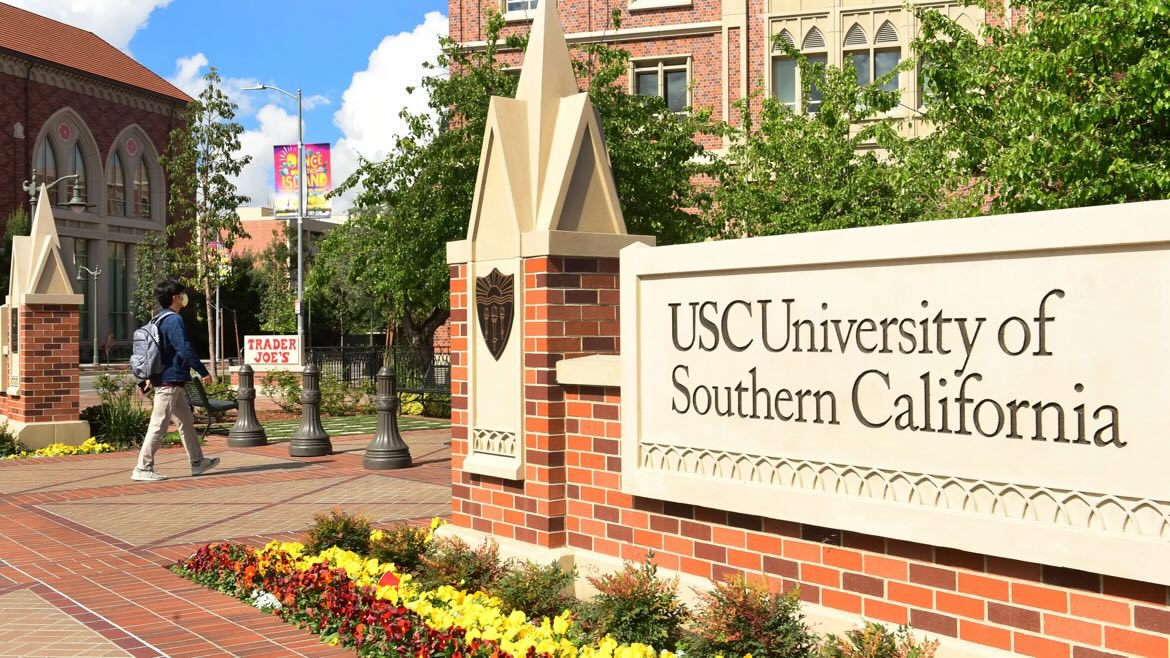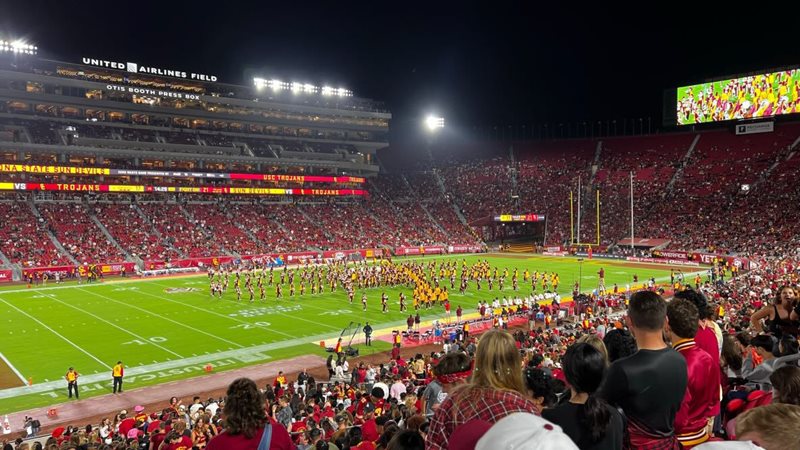America – Erasmus report

The beginnings
Initially, Bence did not want to apply to a course taken at a higher education institution abroad, but after a summer in Austria, he realised that ‘one of the most rewarding things when you’re young is to experience life abroad”. As far as the country of destination was concerned, he wanted to choose a place as far away as possible, because he felt that
‘It is easier to get anywhere in Europe, plus it takes a longer time to discover America’.
As to specific universities, he chose the University of Southern California (USC), because he wanted to experience life in a big city, and he was interested to know what made education at one of the world’s top-ranked business and film schools different. The application process is similar to the process in EU countries, but you are required to have an IELTS or TOEFL language examination.
Once your application has been accepted, a coordinator will help you to submit the official documents, apply for the appropriate visa and register for subjects. In addition, unlike most universities abroad, USC provides all incoming students with accommodation in their own campus, which also makes it easier to prepare for the move. Bence recommends contacting people who have been to the same place you are going to before you go, as this will give you an idea of the specific local conditions in advance. Another practical tip is to take only what you really need, and to buy less important things locally.
Totally different environment
‘One of the biggest positive features of California is that the weather is the same almost every day. It is always sunny, it never rains and it’s about 20°C, which subconsciously makes you happier all the time.’
On the negative side, Bence mentioned only public transport in the city and the state of public safety. He said that there was a relatively high number of homeless people, which was scary at first, but you get used to it after a while. He also added that it was not really necessary to leave the campus, as there were restaurants, shops and bars within the area.
Compared to his experiences at home, Bence pointed out several cultural differences. One of them was clothes, as some people attended the lectures in pyjamas, and others in suits. Another significant difference is the interest in sports, as American football plays a very important role in that culture. People constantly talk about it during the season, and everyone is eager to cheer on their teams. As USC has an outstanding team and stadium, matches are part of university life, and this sport is present even in classroom assignments.

Education system
The American higher education system is different from the Hungarian system in several ways. ‘In class, the main emphasis is on presenting and ‘selling’ yourself, so all subjects are completely project-based, even written assignments have to be presented. Classes are much more active, everyone always wants to ask questions’, Bence said about his experiences in classes, adding that this enthusiastic environment and the assessment system were highly motivating for active participation. The grading system differed from what we were used to, as grades were always determined in comparison with the best result achieved in the given progress check. Another difference, said Bence, was that most of the lectures were delivered by guest speakers, who were among the most respected representatives of the given field.
Bence’s aim was to learn about the economics of the film industry and to experience as many new things as possible. This line of thought determined the subjects he took, as he believes that ‘you try to take the most interesting subjects during your time abroad, and not the compulsory ones’. In his case, this meant taking several subjects related to films, as well as business development classes that are considered as USC specialities, and he tried out special sports, such as golf and surfing. Learning a language abroad is not a difficulty, but a natural process. The programme provides an excellent opportunity for practice, as participants can directly learn the language of the target country in their every-day lives. In addition to developing skills, studying in a live language environment gives you the opportunity to build confidence and practise your communication skills.
Many people don’t take the opportunity to spend a semester abroad because of the difficulties in getting subjects accepted and the possible delays, but Bence says it’s worth taking the risk and inconveniences will be rewarded with experience gained.
‘It’s not too bad that I spent one year abroad and now I’m half a year behind.’
He says that the time spent abroad gives you much more than you lose with skipping semesters, and, anyway, there is a way to make sure you do not have to postpone your studies.
Experiences
When I asked him about the American people, he pointed out that they generally seemed to be more lively than what we are used to at home: ‘My first impression was that everyone is more lively and kinder, and more open to new and unfamiliar things’. However, he added that society in general is more superficial, and it could be difficult to develop deep friendships outside of university if you are not there under a course taken at another higher education institution.
‘It’s a bit like living in a bubble,’ said Bence about their view of the world. They seem to be very well informed about things happening in their own country, but their knowledge of the rest of the world is much more limited. ‘This is probably due to the fact that American companies dominate the media market, presenting their own culture, and people are socialised in a way that they think that their country is the best place to be and therefore they should stay there for life,’ he explained.
Bence stressed that the ‘first few weeks are crucial’, as this is when friendships are formed, so it is important to participate in as many events as possible. There were many community activities on campus to help newcomers settle in. Bence also told us that he met young people from all over the world, as the approximately 150 exchange students all kept in touch, and he lived together with many of them. He stressed that openness is the key to making Erasmus an experience of a lifetime, and that America also requires a certain boldness, as it is not easy to fly home whenever you want.
‘All the unfamiliar and initially uncomfortable situations mean that we have to step out of our comfort zone more often, so we get to know ourselves and our limits.’
Bence explained that in his opinion, this is a time when you change your perception of the world, and find out what kind of lifestyle is right for you, as you have to cope with a completely new life situation. And the knowledge you gain from your experience abroad can be used at home, too, and can even be an advantage in the labour market later on.
Source: KGO
Written by: Katalin Bogos
Cover image: Bence Hevér